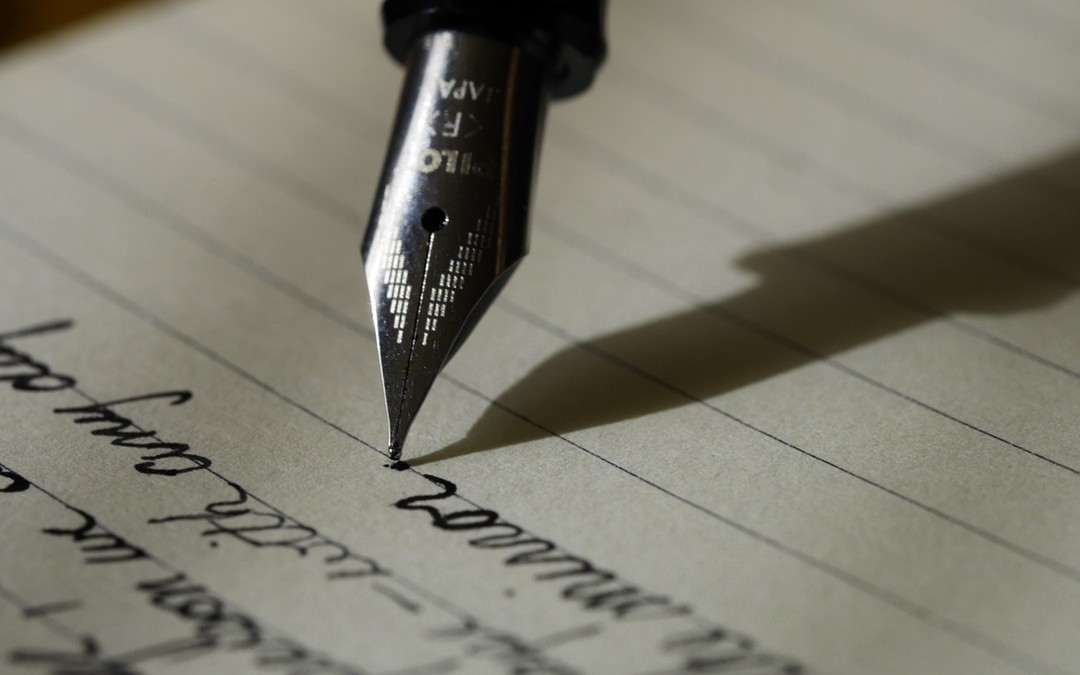
by Rachel Toalson | This Writer Life
Personal essays—we see them all the time out in cyber-space. We read about how this person went to the store yesterday and met a woman there who said something that annoyed them or hurt them or made them feel sad, and now they’re trying to air their feelings. We read about people meeting together at coffee shops and we read about the bigger things that happen—a new car!—and we read about the tiny minutiae of a day.
One of the questions we’ll often ask ourselves if we’re in the business of blogging or writing personal essays is the question, Am I an interesting enough person to write a personal essay?
I’ve considered this one often. I run a humor parenting blog, and many times I’m simply telling the daily stories of my life in a humorous way (because life is pretty humorous when we think about it long enough. Sometimes I try to make those stories a bit more universal, and sometimes I make them so specific to my family that I don’t think anybody’s even going to care about it. Turns out, people do. People do care about it, because, in every story, they get to see themselves.
At least this is what I believe.
[Tweet “Our stories have value because in them people find themselves.”]
We’re all connected by our humanity. If we find value in a story, others will, too.
Now. It makes a difference how you tell it. If we’re just telling the facts of our outing to the grocery store, we’re probably not going to get many people nodding their heads in agreement. No one really wants to know that at 8 a.m. we pulled up, and the parking lot was close to empty, and we brought home five pounds of apples and ten pounds of bananas, because we live with the equivalent of monkeys. But what they will want to know is how we feel about that grocery bill and maybe a funny story about what one of the kids did when he tried to carry a gallon of milk to the basket.
The most important characteristic of a personal essay is its emotion.
[Tweet “The most important characteristic of a personal essay is its emotion.”]
Emotion is universal. That’s how we make our story universal to our audience. We sprinkle in a little emotion, tell about how this trip to the grocery store affected us, tell about what we thought as we strolled out the doors with that basket full of groceries and the receipt still crumpled in our hands and kids hanging off the sides, making the basket even harder to push. We tell about how it seemed like the sky turned grayer as we walked to the car, because we’re worried about how we’ll possibly be able to feed the bottomless pits of six boys when school’s out for the summer.
We don’t have to make up situations or things that happened in order to make our lives interesting enough to warrant a personal essays. The trick is just to highlight the emotions of an encounter—whether that’s humor, fear, hope, joy, frustration, surprise. The possibilities are endless. I could write four different personal essays out of one event in my life, focusing on different emotions.
Essentially, a personal essay is the telling of a life story and our reflection on it.
So it doesn’t really matter if we lead an “interesting enough” life or not (also, who gets to decide who leads an interesting enough life, anyway); what matters is that we know how to tell a story.
Do we know how to tell a story?
A story has characters, and it has plot, and it has tension (this is where I feel we’re getting a bit confused in our culture of marketing-with-a-story, because we’ve forgotten what the essentials of a story are—but more on that another day). We start with characters, we add a little conflict and tension, we have a theme, we have characters transforming, even a tiny little bit, by the end of it. A personal essay needs all of those elements, too.
If we think about our lives, they have all of those elements. Characters: family and friends. Conflict and tension: Our dealings with other people, the environment, ourselves. Plot: what happens in the course of a day or outing or whatever it is we want to write about. Theme: What we take out of our experience. Character transformation: We are changed by everything that happens in our lives.
Writing a personal essay is, at its simplest, telling a good story. It’s a commentary on the human condition, told through a personal story.
So maybe rather than worrying about whether or not we have an interesting enough life to warrant a personal essay, we worry more about weaving a story around our lives that, though specific, feels universal to the human condition. We look at the stories we’re telling about our lives. We examine where themes slide in and where conflict throws rocks on the road and where we might be most changed, and then we tell it all for the understanding and recognition it might bring.
There are millions of blogs out in cyberspace. How we make a mark in all their minutiae is to tell something that matters to us and the rest of humanity. Even if we’re writing about surviving the time when our son was diagnosed with a heart murmur, as long as we’re writing about the emotions of that experience, other parents suffering through their own child-scares will find value in it. When we work through our emotions on a page, we make our personal stories mean something to others.
I tell personal stories all the time. I use them to demonstrate a larger point, because it’s only after I’ve reflected on my personal stories and tried to find a common theme in humanity, tried to find where the story fits in the world, that I feel I can effectively share that story with the world’s people.
So, you see, it’s not about whether or not we’re interesting at all. It’s really about how well we can spread our experience into the experience of others.
Week’s prompt
Pictures have an amazing ability to spark our creativity. Write whatever you want for as long as you want on the following picture.

by Rachel Toalson | This Writer Life
Writers, we sometimes tend to be different people than the national norm. Not all of us, but some of us. I know a few of us who are really positive people, but a whole lot of us feel like the world’s ending when we can’t think of anything to write for the day’s blog or we’re stuck tight in a plot line. What if it never gets better? What if this is all we’ve got? What if all of that is true?
I tend to be one of those people who thinks worst-case scenario. If something goes wrong, I think it will always be so. If I write a blog post I think will cause all sorts of waves and maybe even hit the coveted viral spot (even though that’s overrated) and then I share it and it’s crickets, I think no one likes the things I write and that I’ll never be popular enough to do the whole blog-a-book thing. And if I have a book that doesn’t do as well in a launch as I’d hoped, I think that it’s probably always going to be this way, that no one will ever enjoy my writing and the people who read all my writings right now are probably the only audience members I’ll ever get.
So it’s odd that I would be the one to make a case for thinking positively, since that’s something that most definitely does not come easily or naturally to me. My husband is a positive guy, and he’s usually the one who can talk some sense back into me when I’m feeling a little down about something that went wrong for the day. He’s usually the one who can help me see what it is that I’m doing and how I can learn from the disappointing experience.
If you don’t have a husband like mine, maybe I can help you a little.
There are all kinds of studies that show us the power of thinking positively. We can accomplish more in a day when we meet it head-on and see its challenges as learning experiences rather than you-should-give-up-now experiences. Recently, the hard drive of my computer, where I have ALL of my writing (the ONLY place I have ALL my writing—about three million words that exist in no other place on earth) decided it didn’t want to be all that helpful anymore, and I thought I’d lost it all. Years of writing I would never get back.
[Tweet “It’s much easier to bounce back from hardships when we see them as learning experiences.”]
My husband, of course, thought it would be possible to restore everything, and he hoped enough for the both of us. I was ready to hang up my career, because that was eight manuscripts I’d worked on last year, and how would I ever recover from that? There were book releases that were fast approaching, and I didn’t have any of those books available anywhere else. It was the worst thing that could have happened.
My husband spent hours trying to recover my work, and he succeeded, not thanks to me.
But I’d lost a whole day to worry. I’d lost a whole day to imagining the worst-case scenario. Sure, I tried writing a little to distract myself, even though I didn’t have a computer to write on and had to use my husband’s unfamiliar one that didn’t know my hands like mine knew them, which was, in itself, a reminder of how dire this situation was (what if I didn’t get all that work back? What if I lost whole years? What if my computer was broken for good?). The writing helped me not think about it as often. But every time there was a lull in the typing of an essay, I would think about how I would have to give up. It wasn’t worth trying again, not if we couldn’t recover those files.
Everything ended up perfectly fine. And what we learned from the experience is that we need to back everything up, because those files are far too important not to—and we do this every evening when I’m done for the day.
How much time would we save in thinking positively? I’d wasted a whole day thinking negatively. I could have done a whole lot in a whole day.
I know it doesn’t necessarily come easily for all of us, and I know it can get difficult to see the silver lining in something like losing a whole hard drive with three years’ worth of work on it, and it can be hard to see the positive in a book release that fell flat, and it can be hard to look at personal problems with something akin to hope. Sometimes we’re too afraid to hope, because we’d rather imagine the worst-case scenario and then be pleasantly surprised when it doesn’t end up that way.
But we could save ourselves a lot of heartache and worry if we would just think something like this:
Yes, this will go well.
Yes, I can do this.
Yes, I will get through this.
It’s not easy to change ourselves so drastically, but here are some things that might help us see the value in positive thinking:
1. We won’t spend as much energy worrying.
So many studies point to the fact that worrying is terrible for our bodies and our minds. It affects us physically and emotionally, and that, too, can affect our ability to write well. If we weren’t spending so much time and energy worrying about what might happen, we could spend a little more time writing. Which is always needed in the life of a parent writer.
2. Thinking positively has been proven to make us feel happier and more fulfilled.
If we’re a glass-half-empty kind of person, we tend to see everything with a glass half empty. We see our family and our relationships and our writing and our life half empty. I want to see my life full. I want to see my relationships and my family and my writing with a glass half full. I want to believe that this is the best life ever—even if my hard drive crashes and I lose all my work—and that the future has great things in store for me. Maybe being disappointed, if those things aren’t actually true, is better than being pleasantly surprised, because, along the way, you actually get to LIVE.
3. Thinking positively could possibly bring those positive things to you.
There are different camps to this line of thinking. Some say it doesn’t matter what your mind thinks, the universe gives what it gives. But more and more people are recognizing the power that our minds can have over what we get in life (and some scientists have even proven it in studies). When we see things in a positive light, they say, we tend to attract those things.
And if I’m looking at it objectively, when I’m caught in one of my negative thinking patterns, I tend to see the negativity everywhere. What if we expected the best? Would the best then come to us?
Well, I guess I’d like to try. Wouldn’t you?
[Tweet “What if we expected the best? Would it come to us? I guess I’d like to try. Wouldn’t you?”]
Week’s prompt
Write as much as you can for as long as you have about the following word:
Smells

by Rachel Toalson | This Writer Life
This is something I tell my children all the time (because, of course, I’m teaching them to be writers):
[Tweet “The best way to become a better writer is to read. Widely, intentionally and continuously.”]
But don’t just read. Study. Gather. Analyze.
Earlier this year, I started reading books more critically. I pull out passages that I like and write a short note on what I like about them. This does two things for me (besides slowing me down when I’m reading):
1. Because I’m typing the passages onto a document on my computer, I’m writing that passage as if it’s mine (definitely don’t ever use it as if it’s yours, though. That’s not what it’s for). Did you know that there were writers of old who copied down entire chapters of the books they admired because they wanted to get a feel for the voice it was written in? They wanted to see what it was like to write brilliant words. So this is, essentially, what I’m doing when I’m copying those words down into my “book notes” document—I’m imagining how it feels to write brilliant words like Salman Rushdie does and brilliant dialogue like Rainbow Rowell does and brilliant humor like Erma Bombeck did.
2. Because I’m studying these passages, I’m able to point directly to what techniques I feel work in fiction and what techniques seem to fall flat. I’m pulling out passages on characterization and passages that have beautiful language and passages that make me laugh, and I’m assessing why it is that the passage works. I’m learning how to employ that in my own writing. I’m taking these techniques, from this studying of masters, and I’m applying them to my own work, even if the knowledge remains only in my subconscious.
To be sure, studying books in such a comprehensive way means the reading of them takes longer, and I can’t do it with every one of them, because sometimes I just want to read a book for pleasure. Plus some of the books I read—like mystery thrillers and adult romance, which I don’t have plans to write anytime soon—I don’t really feel the need to learn from just yet.
But I did start reading through all the award winners—the best adult books, the best memoirs, the best nonfiction, the best in kid-lit—and I’m trying to learn from the ones that have been named the best of the best. I’m trying to study them so that I can write my books in the best possible way I can.
Mostly because there’s a reason these books are published. There’s a reason why they won a prestigious award. So it’s worthwhile to study them so that we can glean what we can and apply the lessons learned to our own story technique.
Here are some reasons I write down a passage:
1. I’m held by it.
Sometimes, in my reading, I’ll get stuck on a passage that’s just so beautiful I want to read it again. I always mark them, because, clearly, it’s a passage that stuck out to me, and I want my writing to contain the same kind of passages. Sometimes I’m held by it because it was so hilarious, and I want to find out why, exactly, it made me laugh. Sometimes I’m held by it because it was a great passage on characterization and voice, and I’d like to keep it as an example of that when I get stuck in my own characterization and voice.
2. It stirs up a particular emotion.
It doesn’t really matter what kind of emotion—I love studying emotion in story. Most of the time I write down passages that feel a little bittersweet, a bit sad but also a bit beautiful. Sometimes I’ll write down passages that invoke anger or a feeling of injustice. Sometimes I write down the tragic passages that can’t be forgotten.
3. It’s a really good line that holds some universal truth.
I enjoy studying the art of good writing, whether it’s poetic writing or skilled humor writing or very emotional writing. But one thing that I’ve noticed about the award-winners is that there is always some line of universal truth in their stories. Sometimes it’s hidden in a passage about the tragedy that a certain character recently endured. Sometimes it hangs out all on its own. Sometimes it’s so buried you have to dig deep for it. But I also write down those passages of universal truth, because they tend to have a unique impact on readers, and there’s a reason that the award winners do it—because it makes a difference in the lives of readers everywhere. It changes people for the better, or it makes us think more critically or it shows us how to be.
Read in the genre you want to write in. Read in every genre, if you want, but especially read in the one you want to write. Read wide and deep and long, and figure out what other authors are doing to make their books so amazing.
This is how you’ll become a better writer.
Obviously, in order to read more, we’ll have to make time to read more. But that’s an article for another day.
For now, remember:
The more you read, the better you’ll write.

by Rachel Toalson | This Writer Life
Last week we talked about some of the misconceptions that surround a writing career, including the lie that only certain people have a compelling story to tell.
But there are more lies than just those that surround the actual pursuit of a writing career. There are also lies that surround the conditions of a writing career. We think we have to do it full time. Or we think we have to give it up when we have kids. Or we think we have to get out there and brush shoulders with all the important people, because we need to know somebody in order to make it in this business (sometimes that can work. But not all the time.).
So here are four more lies we tend to grab when the going gets hard.
1. You can’t build a writing career when you have kids.
I am a living testament to the fact that a writing career does not end just because you have kids. Now. It takes a lot of juggling. My husband and I split our days down the middle, and he’s the one making the money, which means he only has half as many hours to do what most men do in eight (he’s pretty incredible). He’s been supportive since the very beginning, which is what every writer needs—a supportive partner.
But even before we did it this way, when I was working a full-time job to support my family, I needed an outlet for all the passion and heartache and frustration and joy in my life. So I would write in the late-night hours, after the kids were in bed. I would find the time.
[Tweet “There’s always time to write. We just have to find it—and we will if we love it enough.”]
My kids give me great stories. They also help me better tell my stories, because I can read what I write to them, and the questions they ask are good questions about characters and plot and what this means. Because I write kid-lit, their questions are incredibly helpful in the revision process—which makes them fantastic people to have on my team. They’ve made me a much better writer than I used to be.
2. You can’t do it when you have a full-time job.
I started this business with a full-time job. It was tough. I was a mom of five and working full-time and there were all the house things that needed to be done, too. But you know what? If we want something badly enough, we’ll work hard for it.
So I would take my journal out, when my husband was getting ready for bed and my kids were already asleep, and I would jot down fifteen minutes worth of words, every night. I did that for a year, and at the end of the year, I had a book. Actually, I had the equivalent of three long books, with more than 300,000 words.
3. You have to work at writing full time if you want to go anywhere with it.
See the above answer.
Yeah, it’s hard to find time in all the spaces, but if we really, really want it, we’ll do it. We’ll do it however we can. We’ll write in the bathroom, we’ll write while the kids are taking a bath, we’ll write in the mornings before they get up. We’ll find the time somewhere.
If we’re not writing full-time, we’ll have to get really good at making a plan and sticking to it. We’ll have to get really good at putting a project down and picking it back up. We’ll have to get really good at learning to use the available spaces for whatever we can manage—and yet still have time to spend with our family. It’s not balance so much as it is integration. Our writing can be integrated into our daily lives in small ways that, over time, become large ways.
4. You have to know someone to make it somewhere.
I used to tell myself this one a lot—that those people who were successful writers just knew someone, and that’s how they got the awesome publishing deal. Or that’s how they got 10,000 readers on their mailing list. Or that’s how they made it to the top of the bestseller list. And it’s true that sometimes authors do know someone, or they are someone (celebrity memoirs sell better than others). But it’s all in what you do with your time, not all in who you know.
This is a difficult one to wrap our minds around, because sometimes it can be discouraging to actually do the work it takes to get published, and what we really want is a magic little pill that gets us an agent and a publisher and a great advance (or a successful indie book).
But if we’re not doing the work in the first place, whether or not we know someone won’t make the slightest bit of difference.
So let’s recap:
1. We can build a writing career when we have kids.
2. We can build a writing career while working full time.
3. We don’t have to be a full-time writer to begin our writing career.
4. We don’t have to know someone to make it in the writing business.
All we really have to do is do the work, which takes a commitment in and of itself. But if we’re willing to do it, we’ll watch our career leap to the next level.
Week’s prompt
Photos have an amazing ability to unlock our creativity. So write on the photo below for as long as you want. Write what you see, write what it makes you think about, write what you feel. Just write.
Photo by Veeterzy.

by Rachel Toalson | This Writer Life
There are a lot of misconceptions that hover around the writing profession. I can see them in people’s eyes when I answer the question “What do you do?” with “I’m an author.”
People think they have an idea of what it’s like to be a writer. (I thought I had an idea of what it was like to be a writer–before I became one.) They think writers sit around and write all day and that they either make a lot of money or they’ll be really poor (nothing in between).
I’ve heard these lies all my life (and even spread them), and for a while, I truly believed them. But what I’m discovering, as an indie author who also has manuscripts out with agents, is that I get to decide which ones are lies and which ones are truth. Here are the lies I’ve found.
1. You’ll be poor.
I know a whole group of authors who are doing this writing thing as their only job, and they’re not anywhere close to poor. Most of them are self-published authors who have control over all parts of the publishing process and also keep all the proceeds from their sales, but there are some traditional authors who are making good money, too.
Now. That’s not to say that all authors will be rich, of course. There are only a small percentage of writers who actually get rich at it, and they’re usually the ones sitting up on the bestseller lists for years at a time (not saying you can’t, just saying it’s good to know what it takes). It depends a lot of genre. If you prefer writing literary books like I do, you’ll probably never get rich at it, unless you have a thousand books. People don’t buy poetry and literary fiction like they buy thrillers and romance.
But we can all still make a good living off our writing if we’re smart about the way we run our business.
2. Writing is a creative endeavor, so you don’t have to worry about the business side of things.
False. The truth is, we’re all business people if we’re writers, and we’re going to have to learn things like email marketing and how to have a social media presence and what we can do to build a platform. That becomes especially important as indie authors, but traditional authors need to know about marketing, too. Releasing a book, unfortunately, isn’t as simple as releasing a book. There’s timing and wording and selling, and a whole bunch of things I didn’t really know about when I first got started..
I was surprised by how much I had to do to get my books published on the indie side. I shouldn’t have been. In the traditional world, it takes six months to a year (sometimes longer) to get a book published once a publisher accepts it. Of course it’s going to take a self-published author a little time to do it, too.
But if we’re not considering the business side of things, we’re not going to go very far in this business.
3. A writing career isn’t all that rewarding.
If you’re looking at things from a monetary standpoint, then maybe for some it isn’t really worth making a career of writing. My books have only made a handful of change in the last six months. But when I think about how those words were all bottled up inside me and now they’re finally out, finally free, I feel like writing is definitely worth the work it requires.
It’s always a worthy choice to tell our stories, whether or not anybody picks them up to read them. Do you know what happens when we tell our stories? We come to know ourselves better. We find our voice. So just because one project doesn’t sell well doesn’t mean the next one won’t, either—because we’re always practicing and always doing the work, which means we’re getting better and better and better.
4. Only a certain kind of person has a compelling story to tell.
Its true that sometimes it can feel hard to find a compelling story to tell, but I always tell people to start with their lives. What story can they tell from their life in fiction or nonfiction that might resonate with readers? Maybe you had a boring life (I think every life is fascinating, so you’d be hard-pressed to convince me that you haven’t led an interesting one), or maybe you don’t feel like anything all that significant happened to you growing up or maybe you never met a quirky person in all your years. In that case, I’d invite you to revisit your memories and open up your eyes. Look for stories everywhere and then practice telling them. Start a blog.
There’s this guy I know who writes a blog about all the homeless people he meets on the streets of his city. His stories are intriguing, and he is one of the most compassionate men I’ve ever known. His readers love hearing about the characters they’ve come to know from his street stories.
[Tweet “There’s a story to tell everywhere. We just have to crack our lives open and tell them.”]
These aren’t the only writing lies, and I have a Part 2 coming next week–about the lies we unknowingly place around the circumstances of our writing careers.
But for now, remember:
You have a compelling story to tell. So tell it.

by Rachel Toalson | This Writer Life
We’ve all done it. We finally have the time to write, and we pull out our computer or our notebook, and we’re staring at a white screen or a white page, and our head is full of…nothing.
Some call it writer’s block. I call it internal editor block.
One of the biggest challenges we as writers have is outrunning our internal editors, because they’re the voices that can make us stare at a blank page and have nothing in the world to write. We’re putting too much pressure on ourselves. We’re making too big a deal out of the rough draft. We’re letting those annoying voices keep us from using this valuable time we have.
You call yourself a writer? they’ll say.
No one would read this, they’ll say.
This is terrible, they’ll say.
Well, of course it’s terrible. It’s the first draft.
There are some stories that come out just fine when we write them, and then there are others that don’t come out well at all, and they need a whole lot of loving care. But it doesn’t matter. The point is that the first time, every time, you should just be concerned with getting the words down on paper. That’s the only purpose of a first draft.
So get the words down. Stop worrying so much about the way they sound.
I know. It’s not easy. We want it to sound good right out of the gate, and when we go back and look at what we’ve written for the day it actually sounds a little hollow and cliche, and this is never going to be good, is it? Well, not if we’re constantly putting pressure on ourselves—convincing ourselves that we need to be writing better when we’re only supposed to be getting that initial run of the story down. Not if we’re going to keep focusing on the way the words sound when we’ve only just started writing. Not if we’re hoping the rough draft will come out perfect the first time.
[Tweet “It takes a while to make a manuscript good. It takes even longer to make it great.”]
We can’t expect to get it down all neat and perfect the first time we tell the story.
It’s like when we’re telling a story to our kids. We tell that initial story, and they’re mostly interested, and then the next time we tell it, we add a few far-fetched details, and they’re even more interested, asking for it now, so we tell it again and again, and every time it gets better, because we’ve had practice telling it.
That’s what multiple drafts do—they helps us practice the telling of our story. We refine and add and delete and shape it into the best version it can be.
What’s going to happen if we keep putting the pressure on ourselves is that we’re never going to finish the work of a manuscript. And an unfinished work is way less valuable than a finished work that makes no sense yet—because with a finished work, at least we have somewhere to go with it.
Those internal editors have many different voices. They might sound like our professor in college or our mother who never really believed in us or, worse, ourselves (that’s what mine sounds like, most of the time). But they have no power over us, even though they like to think they do. They have no power.
We are writers. We don’t need the editors right now.
Here’s what I do: I write my first-draft words as fast as I can, and then I let that draft sit for a month. The I go back and turn it into a “final” draft, which is really just a soft final draft, because there will be two or three more drafts after that. One of them I’ll read through on the computer, to tighten up any typos or spaces I feel like need some tightening, and then I’ll print out a copy, no matter how long the story is, and break out my purple pen and get to work, reading for a lot of different things: typos, continuity, questions, errors in the story line, passages where I was unclear, word usage and language, and dialogue.
For me, seeing my work in hard copy as opposed to the same way I’ve been looking at it for months at a time, helps me look at it more objectively, almost like it belongs to someone else.
All this to say that in those first drafts, the internal editor shouldn’t be allowed in. I open the door for them in the final drafts, because sometimes the things they have to say are helpful once we’ve gotten the story down. Sometimes they tell me I need to work a little on the characterization of this character, and this passage is too long, and the words try a little too hard here and make themselves unclear there.
[Tweet “When we’re just trying to get the initial story down? Kill the internal editors.”]
Take heart. Sometimes it takes several drafts to get to the heart of a story. Some stories are harder to tell than others. Some stories need some peeling away, and you do that with drafts. Sometimes the way manuscripts look in final form are not anything like what they looked like in rough draft form. It is as it should be.
The first draft should be a telling of the story, from beginning to end, without worrying about technique or language or brilliance or mastery or authenticity. That’s for later.
So many people I know haven’t finished their stories. Usually it’s because they opened the door to the internal editors in the first draft and then didn’t know how to get rid of them. So if that’s you, here are some ways to get rid of them:
1. Write as fast as you can. Set a timer and race it to the end.
Try as hard as you can not to think about the actual writing. If you feel the editors begin to move in the back of your mind, do your best to push them away. There are some stories that, in the middle of writing, I’ve felt the editors come out of hiding, and I’ve had to write harder and faster to outrun them. It gets easier with practice. If we can win the first time, we can win the second time.
2. Don’t look back.
That initial draft is not the place to look back. Don’t even read what you wrote when you’re finished. Close the computer, update your word count and congratulate yourself for all the work you did today. Don’t start reading over the story until you’ve finished it completely.
3. Don’t stop to think.
Remember, you’re racing a timer. You want to get as many words as you possibly can. If you can outrun your thinking, you can outrun your internal editors, because you know what internal editors do? They overthink things. A rough draft shouldn’t be overthought. It helps to have a brainstorm handy and have a plan for exactly what you’re going to accomplish with your block of writing time so you don’t actually have to think at all. You just let the story tell itself.
4. Let your voice tell the story.
The best way to “find your voice” is to do your work quickly, without overthinking it. When we’re writing fast, our voice shines through. It’s when we’re overthinking things, when we’re trying to revise as we write that our voice will feel elusive. So challenge yourself to write as many words as you can, and you’ll begin to hear the beginnings of your natural voice.
It takes practice outrunning your internal editors. But every time you win, it gets a little easier.
So practice. Refine. Win.









